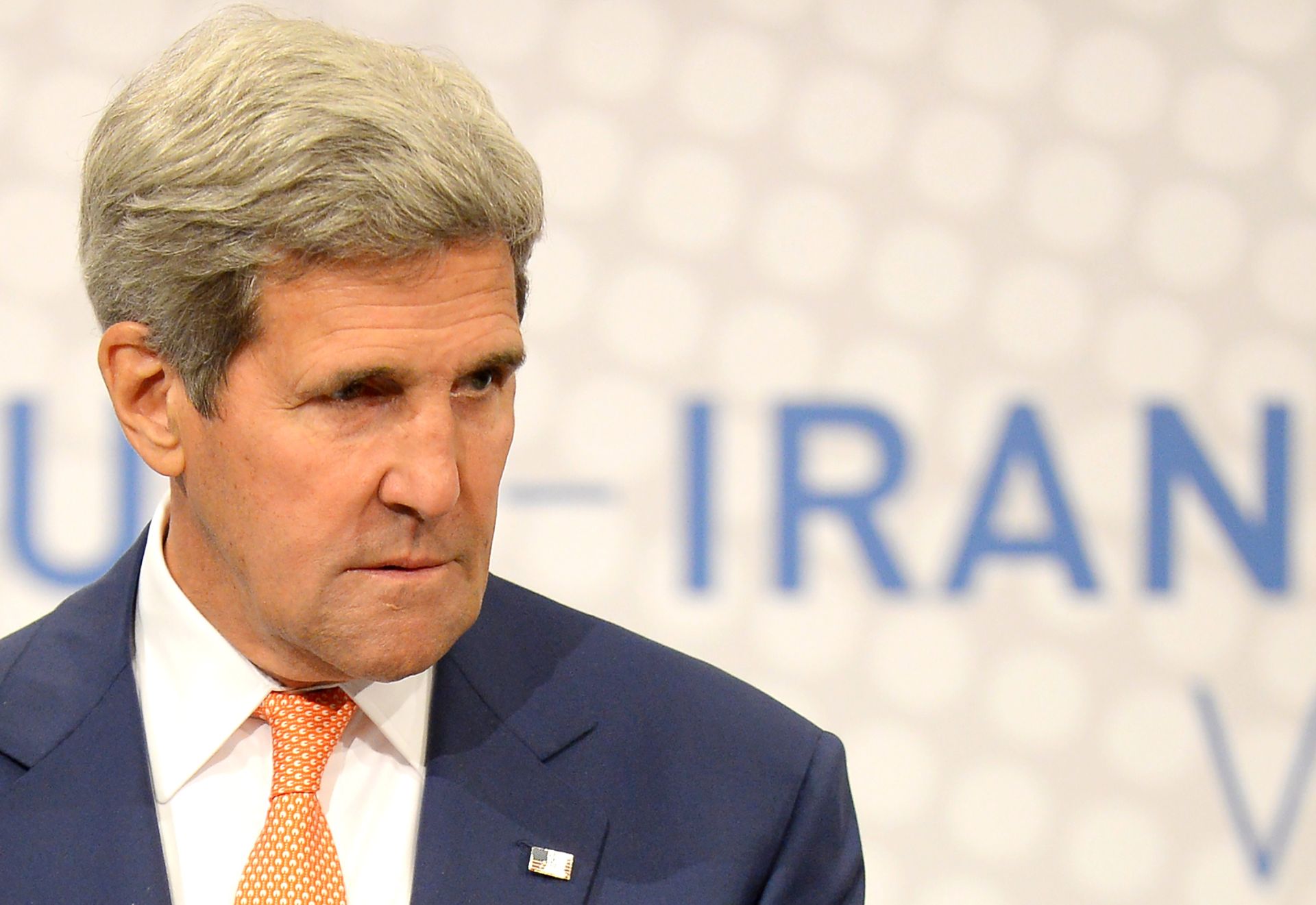US Secretary of State John Kerry hit out Wednesday at a letter by Republican senators to Iran opposing the nuclear talks he is leading, saying it threatened global trust in America.
Just days before he returns to Switzerland for fresh negotiations on Sunday, the top US diplomat also took aim at Republican assertions that Congress could modify any deal agreed with Tehran, saying that was just “flat wrong.”
“This risks undermining the confidence that foreign governments in thousands of important agreements commit to,” Kerry told US lawmakers, as he was grilled about the negotiations now reaching a critical end stage after months of behind-the-scenes talks.
“It purports to tell the world that if you want to have any confidence in your dealings with America they have to negotiate with 535 members of Congress,” Kerry added, shooting down such a proposition as “untrue” and “profoundly a bad suggestion.”
Forty-seven Republican senators sparked White House anger when they took the unprecedented move this week to directly address Iran’s leaders in a bid to scupper the talks between Western powers and the Islamic Republic over the country’s disputed nuclear program.
In their letter, the Republicans warned that any deal agreed before Obama leaves office in 2017 is “nothing more than an executive agreement” that could be struck down by Congress later.
But Kerry, who spent 29 years in the Senate, said the “irresponsible” letter’s basic premise was untrue, expressing “utter disbelief” at the missive.
“It’s incorrect when it says that Congress could actually modify the terms of an agreement at any time. That’s flat wrong. They don’t have the right to modify an agreement reached, executive to executive, between leaders of a country,” Kerry insisted.
While formal treaties require the advice and consent of the US Senate, the “vast majority of international arrangements and agreements do not,” he said.
“This letter ignores more than two centuries of precedent in the conduct of American foreign policy,” Kerry stressed.
Kerry also argued that it was unlikely that a future president could come into office and tear up a deal agreed with US partners — Britain, China, France, Germany and Russia.
“I’d like to see the next president, if all of those countries have said this is good and it’s working, turn around and just nullify it on behalf of the United States. That’s not gonna happen,” Kerry said.
Senate ‘should vote’
Iranian Foreign Minister Mohammad Javad Zarif, who has met multiple times with Kerry over the past months to negotiate the deal, told top clerics Tuesday the letter had sapped Tehran’s confidence in its talks with the US.
“This kind of letter is unprecedented and undiplomatic. In truth, it told us that we cannot trust the United States,” Zarif said.
The Republican-led Congress has been pushing to be given a vote on any deal reached between the global powers and Iran.
And Senator Rand Paul, who signed the letter, pushed back against Kerry’s comments, saying it should have been copied to the White House, which he argued had not listened to the objections of lawmakers about the emerging deal.
“I’m not particularly happy with being lectured to by the administration about the constitution. This is an administration who I believe has trampled the constitution at many turns,” Paul said.
Another co-signer Senator Jim Risch argued that it was “nonsense” to say senators should not communicate with Iran in the middle of negotiations because as elected officials they had “constitutional responsibilities.”
Risch argued it was a “treaty that is being negotiated” and should be treated as such — meaning it should win the approval of Senate.
The administration of President Barack Obama has insisted, however, that the deal will be agreed through the president’s executive powers, although at some point Congress will have to vote on whether to lift a network of sanctions imposed on the Islamic Republic.
“We’ve been clear from the beginning that we’re not negotiating ‘a legally binding plan,'” Kerry said, stressing Washington and Tehran did not even have diplomatic relations.
“We’re negotiating a plan that will have in it the capacity for enforcement.”










